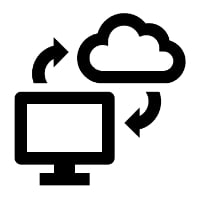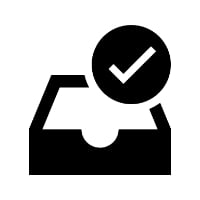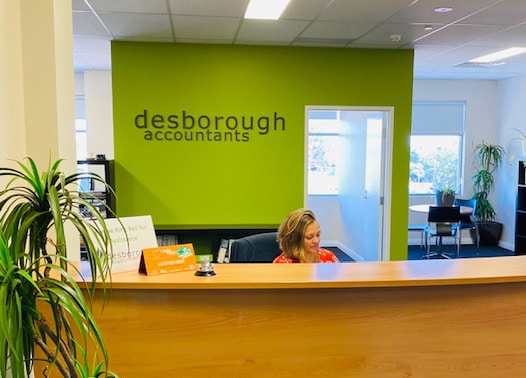This is a guest post from from Lee Fox CPA and Director at desborough accountants
Important Disclaimer
Australian tax legislation contains specific anti-avoidance provisions which target schemes entered into with the dominant purpose of tax avoidance. It is essential that you consider your specific circumstances before proceeding with any tax planning ideas to ensure these rules do not apply. While legally minimising tax should always be a consideration, it should not be the main driver in any transaction.
The tax planning ideas presented to you today and contained in this summary are of general nature only and have been provided to assist you as business owners with some general ideas in relation to your tax affairs. The ideas should not be relied upon without seeking professional advice in relation to your own circumstances.
Budget Summary
The Federal Budget is a large document with an enormous amount of information to digest. In saying that, however, this budget was a bit underwhelming in that there is not a lot of meaningful tax reform. We have summarised here some of the main points below that are relevant to Small Business and individual taxpayers.
Business Tax
Temporary Full Expensing of Business Assets – The Government plans to extend this measure for another 12 months which will take us to 30 June 2023. This measure allows eligible businesses to deduct the full cost of eligible depreciable assets purchased after the 6th of October 2020 and installed and ready for use by the 30th of June 2023. The assets can be new or second-hand and there is no price limit on the assets.
Company Losses Carry Back – The Government is also planning to extend the temporary loss carry-back provisions for a further 12 months until 30 June 2023. This will allow eligible companies to carry back tax losses from the 2022/23 financial year as far back as the 2018/19 financial year.
Self-assessment of Effective Life of Intangible Assets – Taxpayers will be able to self-assess the effective life of eligible intangible depreciating assets. Intangible assets include patents, copyrights, registered designs, and in-house software. Currently it is required that businesses use the effective lives as prescribed in the income tax legislation. This change will apply to assets acquired from 1 July 2023 onwards.
Expanded Excise Refund Scheme for Brewers and Distillers – The available excise refund scheme for all alcohol manufacturers will be aligned with the wine equalisation tax producer rebate. This means that from 1 July 2021, eligible brewers and distillers can receive a 100% remission (previously 60%) of any excise they pay up to $350,000 (previously $100,000). This is a major boost for small time brewers and distillers
Superannuation
Downsizer Contribution Changes – The Downsizer program allows individuals to make a one-off, post tax contribution to superannuation of up to $300,000 from the proceeds of selling their home. This is particularly useful when one is “downsizing” to a cheaper and smaller residence and has left over funds. The Government has announced that the eligibility age for making these contributions is being reduced from 65 to 60. This change will apply from the first financial year after Royal Assent of the legislation, most likely to be 1 July 2022.
Superannuation Guarantee –The Government announced the planned removal of the $450 per month threshold for superannuation guarantee (SG) eligibility. Currently, employers do not have to pay the SG for employees who earn less than $450 per month. This will apply from the first financial year after Royal Assent of the legislation, most likely to be 1 July 2022.
Work Test Abolished – The superannuation contributions work test will be removed for individuals aged 67 – 74 when making non-concessional or salary sacrifice contributions. It will remain in place however for individuals in this age bracket making personal deductible contributions. This change will apply from the first financial year after Royal Assent of the legislation, most likely to be 1 July 2022.
Personal Tax
Self-Education Expenses Simplification – The method for calculating self-education costs has been simplified, making it easier to determine eligible deductions.
Low and Middle Income Tax Offset (LMITO) – affectionately known as Scomo’s $1080, this measure provides for an offset of up to $1080 to eligible individual taxpayers. The budget has announced an extension of this temporary measure of 12 months, meaning it will now apply to the 2021/22 financial year. This offset is calculated when you lodge your personal tax return and employers do not need to make any adjustments for their withholding.

2021 EOFY Tax Planning for Small Business
Every business should review their business “state of affairs” in May or June each year. This is important to enable you to perform prior year comparisons and budgeting, but also to determine early if you are going to have a “tax problem”. You can use some of the ideas below to address this but please speak to your Accountant before making any decisions.
Income Timing – delay income from late in the year to the following year
- Consider which financial year is better to recognise income – potentially delay invoicing.
- Review your debtors – write off any that you believe have become bad debts. (Note this won’t change tax position if you are reporting on a cash basis but it still will tidy up your accounts).

Bring Forward Expenses
- Small businesses can prepay up to 12 months’ worth of some expenses – for example loan interest, rent, insurance (including income protection) and memberships prior to 30 June.
- Pay the June quarter superannuation guarantee contributions (SG) for your staff prior to 30 June (must be received by fund before 30 June to be deductible).
- Pay any donations prior to 30 June (ensure the donation is an endorsed gift recipient).
- Make any personal super contributions prior to 30 June 2021 (please consider the contribution cap of $25,000 p.a. which includes SG, salary sacrificed super and personal contributions).

Capital Gain
Self-Education Expenses Simplification – The method for calculating self-education costs has been simplified, making it easier to determine eligible deductions.
Low and Middle Income Tax Offset (LMITO) – affectionately known as Scomo’s $1080, this measure provides for an offset of up to $1080 to eligible individual taxpayers. The budget has announced an extension of this temporary measure of 12 months, meaning it will now apply to the 2021/22 financial year. This offset is calculated when you lodge your personal tax return and employers do not need to make any adjustments for their withholding.

Assets
- Planning to sell equipment? Check whether it is likely that this will result in a profit. If so, delay until post 30 June. If the sale will result in a loss, sell prior to 30 June.
- Temporary Full Expensing of business assets came into existence via COVID 19 relief measures. Currently, eligible businesses can access Temporary Full Expensing measures for eligible depreciable assets of any value. In the recent Federal Budget, it was announced that this will continue until 30 June 2023. This means that any assets you purchase prior to 30 June 2021 can be claimed in full as a tax deduction in the year they were purchased, rather than having to write them off over their effective life via depreciation. Consider purchasing large assets prior to 30 June 2021 to take advantage of the deduction in this current year.
- Under the Temporary Full Expensing measure, all Small Business General Pool balances can be written off on 30 June 2021. This means you get the full deduction for the remaining value of your depreciating assets in the 2021 financial year.
- Note that the eligibility test for Temporary Full Expensing is that the businesses aggregated turnover is less than $5 billion for new assets and $50 million for new and second-hand assets. Eligible assets are those that are first held by you OR installed and ready for use, on or after 7:30pm AEDT, 6 October 2020. Buildings and capital works are excluded

Superannuation Contributions
- Consider paying your June quarter Superannuation Guarantee Contributions (SGC) before 30 June rather than waiting until the due date of 28 July.
- Note that super is deductible only once it is received by the fund, NOT when leaving your bank account so don’t leave payment until 30 June – we would suggest at least a week beforehand.
- The concessional superannuation contribution cap for the 2021 and future financial years is $25,000, regardless of age. This includes SGC, salary sacrificed amounts and personal deductible contributions.
- The non-concessional (post tax) contribution cap for the 2021 and future years is $100,000.
- Remember, any amounts that hit your fund between the dates of 1 July to 30 June in a financial year will count towards the caps.
- Personal concessional contributions – if you are planning to make personal contributions you must meet the eligibility requirements:
- You must be aged between 18 and 74.
- If you are aged between 65 and 74 you must also pass a work test – 40hrs worked in a consecutive 30 day period during the year. (Note that this may change in future years based on the recent Federal Budget).
- You must lodge a ‘Notice of Intent to Claim a Deduction’ form with your fund and receive an acknowledgement from them (provide your accountant with this).
- REMEMBER TIMING IS IMPORTANT!


Tax Tip!
Employers – the Superannuation Guarantee percentage is changing as of 1 July 2021. Between 1 July 2021 and 30 June 2022, SG must be paid at a rate of 10% (up from 9.5% currently). The rate will then increase by 0.5 each year until it reaches 12% in the year ending 30 June 2016. Ensure you update your payroll software so that you are paying the correct amount for your employees
Trading Stock
- When doing your stocktake, consider stock that may have lost value or become obsolete. Either write it down or write it off altogether.
- Choice to value at cost, market value or replacement value – what gives the best outcome and is most appropriate?
- If the change in your stock value was less than $5000 from the prior year – no physical count required.

Staff Payroll
- Recognise and pay any bonuses prior to 30 June.
- You should have moved to appropriate Single Touch Payroll (STP) software by now; if you haven’t then you need to ASAP.
- Ensure all personal details are up to date in your payroll software for your end of year STP Declaration.
- As each individual’s pay data (income, tax and super) is transmitted to the ATO throughout the year, there is need for PAYG Payment Summaries again in 2021.
- Employers need to finalise STP Declarations within their payroll software by:
- 14 July – Employers with 20+ staff members
- 31 July – Employers with 19 staff members or less.

Trusts
Trust distribution resolutions should be completed by 30 June.

Companies
- Determine and document dividend amounts for the year by 30 June.
- Important that all funds taken out of the business for personal use are to be treated as wages and/or dividends.
- Any other amounts will be considered unfranked dividends in the hands of the shareholder or a Division 7A loan to the shareholder. Unfranked dividends have tax consequences that are not ideal, and loans will incur compulsory interest charges that are not tax deductible and must be paid back at a prescribed rate.
- If you have a shareholder loan, you will require a loan agreement to be in place.
- Best practice is to pay back any amounts taken in the same financial year to avoid the above.


ATO – Review Focus For 2021
The ATO were quiet over the main COVID 19 period, they stopped chasing taxpayers over debts for a while and generally left everyone alone. Now that Australian businesses are essentially back on their feet, they are now starting to ramp back up again. We are contacted daily about clients with overdue lodgements and debts. Remember, the ATO are usually pretty good about coming to a payment plan for debts that you may be struggling with. Provided you keep them in the loop they are generally fair and willing to come to an arrangement that you can meet.
Here are some of the items we know the ATO will be looking into in relation to the 2021 Financial Year.
- Superannuation Guarantee payments – The ATO have noted that many businesses have fallen behind on their obligations and will be conducting audits and reviews.
- Single Touch Payroll – The ATO will be conducting audits and reviews in relation to the data they are receiving (and not receiving) via STP from businesses.
- JobKeeper payment reviews – with so many Australian employers enrolled in JobKeeper, we can be sure that the ATO will be conducting reviews in relation to this. It is vital that you have your paperwork in order if you made claims.
- Cashflow boost payment reviews – the ATO will continue to ensure that entitlements are reaching those employers that need it most. As the program ended 30 September 2020, they will continue to review those who received payments and ensure that the claims were legitimate. Again, it will be important to ensure you have kept all your records in order.
- The ATO have also indicated that they will also be looking into:
- work-related expenses (in particular, COVID 19 home office claims)
- rental deductions, and
- capital gains from the sale of cryptocurrency, property, and shares.

Tax Tip!
Cryptocurrency Trading – When you buy and then subsequently dispose of cryptocurrency, a Capital Gains Tax (CGT) event occurs, and the gain or loss must be included in your tax return. A disposal can occur when you:
- sell or gift cryptocurrency
- trade or exchange cryptocurrency
- convert cryptocurrency to fiat currency, or
- use cryptocurrency to obtain goods or services.
While a digital wallet can contain different types of cryptocurrencies, each cryptocurrency is a separate CGT asset. It is important to keep accurate and complete records of any transactions.
If you would like any further information in relation to the issues raised in this document, taking into consideration your particular circumstances, please feel free to contact our office and make an appointment with one of our Accountants.

Director: Lee Fox CPA
Director: Brenton Italiano CPA
Desborough Pty Ltd ATF Desborough Unit Trust Is a CPA Practice
ACN 602 301 495 ABN 99 727 970 873
Head Office: Unit 7, Central Heights, 11 Barber Street, Kalamunda WA 6076;
PO Box 414 Kalamunda 6926
T: 08 9226 2039 E: admin@desborough.com.au www.desborough.com.au
